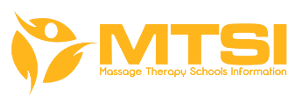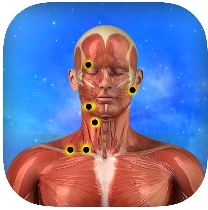
I am a shiatsu practitioner. I also teach qigong and other related classes. I am a business owner and a solo practitioner. I have had my practice for eight years in a holistic health center (of which now, I am also a co-director), along with other practitioners (currently, eight others). I live in southeastern PA, about 40 miles west of Philadelphia. My office is 15 miles away, in Exton, PA.
2. Tell us why you chose to go into massage and at what point in your life did you decide to do so? What were you doing at the time? Where did you first hear about the massage career? What factors influenced your decision? What were you looking to get out of this decision?
I first had shiatsu in 1986, just after graduating art school, while working in a macrobiotic food market in Philly. I thought I would get into cooking professionally along with the art. But I ended up becoming a homeschooling mom of four. It was 12 years later, after taking a Reiki Level One class that I even considered the possibility of manual therapy, and quite honestly, the whole idea of being that intimate with others scared me.
But in 1999, I took a Beginner’s Workshop in shiatsu, and I knew then that was where I was meant to be. I can’t really tell you what I was looking to get out of it. It just felt ‘right’, and it may have been more the Oriental medicine philosophy behind it (that of health being about relationship) more than the actual hands-on practice that really made sense to me. It’s a theme I’ve been able to apply to many areas of life, and teach to others.
3. What were some of your questions and concerns before further pursuing your massage therapy goals? Talk about concerns with school and the profession itself.
Well, with school, it was the logistics. My youngest was only four, and my then-husband had his own business. But somehow, support came when needed, and we made it work.
Of course, I wondered where I might work, what that would like, but I had the serendipitous fortune of being given an office before I even graduated. Not everyone is that lucky!
It was almost like I didn’t have time to consider the aspects that I might have worried about – actually working on bodies with real problems can be intimidating. It’s a huge responsibility. So, I guess I worried most about that. Could I help people? And as a female, would I get into awkward situations with male clients?
4. What is your specialty and what are the top three contributing factors to your success today?
My specialty is shiatsu. I do have some training in tangntial techniques to help with alignment and nutrition, etc. And my best clients are those who care for others: other practitioners, therapists, parents, etc., I think because I can identify with that ‘caretaker ‘mentality and how it affects the body.
Top three factors:
- Starting out by going to as many expos, etc, as possible, and getting my hands on people. Nothing can beat that, in my opinion.
- Having writing skills as a means of cultivating relationships through blogs and newsletters,
- On that tangent, being open about what I deal with, as I think many people feel trust that I understand where they’re coming from. (However, this is a VERY fine balance – between being ‘authentic’ and being needy – I want my clients to know I can relate, but not that I need their help…)
5. What do you like about your specialty? What do you like about what you do in general as a career? Why?
Oh my. To me, shiatsu is such an amazing vehicle for compassionate human interaction and connection. But on a more immediate level, it allows me to give wonderful healing touch to people who hunger for it. Sometimes, it’s very technical and healing immediately.
And sometimes, it just gives space for people to let go. Both are so necessary. In general, as a career – so much freedom – I can allow it to become whatever I want it to. I can work it around and work it into the rest of my life. I’ve also found, as my practice has matured, that I draw from a lot of other experiences in my life in my sessions: from being a mother, from my spiritual practice .. it all shows up in how we connect with our clients.
6. What do you not like about what you do? Why?
For the very same reasons! (smile). It’s a lot of responsibility. You get paid only when you work on people, unless you’ve created other income streams. Currently, we are in a bear of a winter, and I’ve taken a lot of hits this past month. Also, you have to ‘show up’ for your clients, no matter what you’re dealing with.
I’ve left the home after arguments, or little sleep, or with back pains – whatever, and you have to show up and be there for your people without unburdening on them. You have to take good care of yourself and your emotions… though, this is not a bad thing.
And, funny, even after 8 years, I still get ‘performance anxiety’. I still get nervous before every session about whether I can help this person. I have found some small comfort in that other therapists have shared their own fears with me about ‘feeling like a fraud’ at times.
Also, after eight years, I still have not yet mastered the ‘elevator speech’! I find it hard to describe my modality in 30 seconds or less.
7. If there were three things you could change about your work or the industry as a whole what would they be? Why would you change them? What would you change them to?
As far as my work – being shiatsu – I guess the most frustrating thing is the lack of knowledge and awareness about it. And, there is little happening in this country (as compared to Europe and Japan) to offer research and clinical studies that seem to be so important for any kind of acceptance and validation. And for that reason, I worry about the future, as misguided regulation seems to be spreading from state to state.
Whether it’s ignorance or an intentional agenda to stamp out credible evidence-informed holistic therapies, I would like to see more being done to elevate the validity of what we do. Second, I would like to see massage schools preparing students more for the reality of this career…. both as a business and as a therapy. Finally, I would like to see more collaboration between holistic therapists and medical doctors.
8. How long do you plan to practice and what do you plan to do after?
I hope to practice as long as my body can handle it! But on that note, I did discover that I do have a limit as far as what I can do in a day and week without losing the focused intention I try to bring to each client.
I am currently trying to expand my practice to include more movement instruction and teaching, as well as writing and making videos as a supplement. I hope that there’s not really an ‘after’ – that I will always have this ability, even if just to use with family and friends.
9. Do you currently have another job or business whether full time or part time? Tell us a bit more about it and how you are able to juggle that with your massage career?
I did take on a part-time job last year, after a ridiculous flu season which set me back to levels I had not seen since I began my practice (meaning LOTS of clients disappeared for a while!). After my divorce three years ago, I had been considering part-time work as a necessity, to supplement my practice income for a while till I got on my own feet – as before that I had my husband’s income to rely on.
But I was very picky about this, as I didn’t want it to impinge on my shiatsu schedule, should it pick up again. So, I now have a job as “Town Crier” of a local news website. I can work from home, or anywhere, via computer.. updating the website and Facebook page, so it’s mostly flexible around my schedule. The bonus is, it’s very community-minded, and as result, I’m connecting with organizations and individuals in my own backyard regarding my practice – and finding networking opportunities I might not have otherwise.
10. What are some mistakes you made in your career pursuit that you’d like to warn other students about so they can learn from your experience and avoid it?
I did not make a business plan, as every business expert will ever tell you you should do. (I am making one now, though.) It doesn’t have to be huge and detailed and overwhelming. But to set guidelines for yourself – even if they change as time goes by – is a very good idea. “Build it and they will come’” is a mind-set a lot of holistic types have – which can work sometimes.
But I’ve seen and experienced more discouragement than not. Also, don’t isolate yourself. Get a mentor – someone in a ‘wisdom’ role for you; someone who challenges you and gives you feedback. It prevents arrogance, as well as the perpetual self-doubt. And have a non-negotiable self-care regimen in place. We never think we really need this stuff, until we burn out or feel discouraged.
11. What would you advice someone who is looking at massage therapy schools? What do you recommend they look for and how? How do you recommend they determine whether the school is the right one for them?
Hmmm, that’s a tough one, as I didn’t shop for a school. The one I went to was the only one I ever considered (being the only shiatsu school I knew of!) I guess, ideally, you would be able to visit or attend open houses first.
But I think like with college, a lot of folks probably aren’t too specific on what they want out of a school, or out of their career – until they get out there, and get some experience. And I see a lot of massage school ‘churning’ out students, without really preparing them for the reality of the business. I would think interviewing other therpaists would help. Or, sometimes people are drawn to a certain modality because it helped them with an issue.
12. What do you recommend for someone who wants to go to massage school but cannot afford it?
Another tough one. And not because I could afford it, but again, it kind of opened up serendipitously for me! (To this day I marvel at how it all went down…) I think some places may have work-exchanges. That would be my first suggestion.
13. What are your three biggest points of advice for an aspiring massage therapist today? What should they do/not do? What should they think about and consider?
I actually wrote an ebook about this. Highly recommend folks read it.
14. Any open thoughts / comments – anything else that you’d like to share about yourself, the massage industry, profession, future, etc? If nothing, make one prediction for the future of massage?
A prediction… well, we are in an interesting time, aren’t we? On the one hand, many are still just as clueless and up tights about manual therapy as they’ve ever been. On the other, the disillusionment and limitations of conventional allopathic medicine are causing more folks to look to alternative treatments for help.
This is both good and bad… in terms of regulations, supression, sham therapies. I would say that the future of our profession is really up to us, the therapists – to be impeccable in our work ethics, to question ourselves CONSTANTLY about what we claim, what we know, how we care for ourselves and our clients; to advocate for our professions; to dispel myths and misinformation; to know the difference between reasonable and sound regulation, and bullying by certain institutions that either are threatened by us, or want to profit off us. I hope that we can continue as a viable complement to conventional medicine – walking that fine balance between confidence and humility, so that we can serve others in the way that they are seeking.
15. What is your passion outside of massage? What are your hobbies and interests which you pursue when you are not working? Tell us why you enjoy what you enjoy.
I love reading (mostly about bodywork), writing, and making art (wood burning currently), I have a huge garden when it’s not covered in snow :), I love music – recorded and live, and have been learning to play bass guitar. Occasioanlly, I study belly dance with a colleague of mine 🙂
Gina Loree Marks, AOBTA Certified Shiatsu Practitioner can be reached on her website here.








Leave a Reply